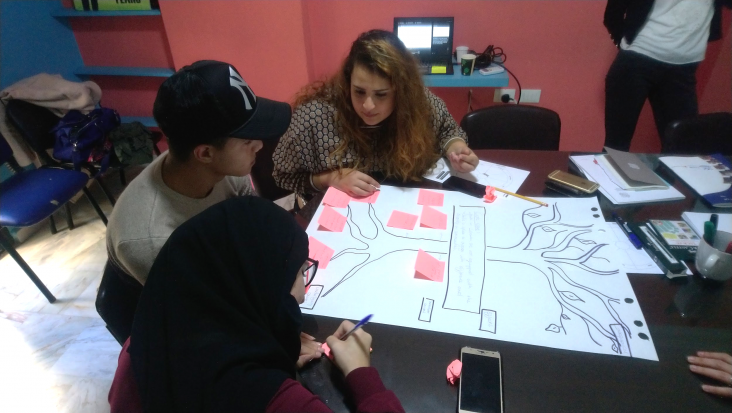Speeches Shim

Zainab was 14-years-old and living in Syria when she dropped out of school to get married, and live with her husband and his family. “Two years later, clashes started in Syria. My husband decided we should leave Syria and so we came to Lebanon. A new version of my life began. Finally, I was living alone with my husband and my son.” Zainab was excited for this new chapter, but she quickly realized that things would not be any easier. Zainab got pregnant with her second child and experienced many health issues that she still battles. Her health problems were compounded by the social disparities that Syrian refugees encounter in Lebanon. Zainab felt isolated and without a support network.
In Lebanon, an opportunity was offered to Zainab. She was invited to participate in focus group discussions through a USAID-funded Tony Blair Institute program implemented by Naba’a - Developmental Action Without Borders. Named Wahda, the Arabic word for “unity,” the program seeks to facilitate youth-led group discussions on tolerance, the power of acceptance and pluralism, and how communities can engage peacefully and productively across social divides.
Zainab joined so she could express and share her opinions - something she previously did not feel equipped to do. Zainab credits her participation in Wahda as an “opportunity to share my views and opinions in a safe space, engage in the Lebanese community and become an open-minded, active girl with a stronger personality and with the skills to express myself.”
Zainab and five other youth dialogue facilitators from a diverse range of backgrounds helped to shape the design and implementation of Wahda. During a design workshop conducted in December 2019, facilitators raised key issues, such as: the lack of social norms around open dialogue and consequent lack of spaces to engage in these activities, the tendency for communities and schools within them to be monolithic, and a lack of emphasis on teaching young people dialogue skills.
The six youth dialogue facilitators said they were looking forward to creating safe spaces that support youth sharing different views and opinions on societal issues faced by young people in Lebanon. They appreciated the workshop’s “friendly environment, including the participation from both males and females with different nationalities, religions, ethnicities, and ways of thinking.”
USAID recognizes the importance of harnessing the power of youth to foster accepting and tolerant communities. Wahda has a total cohort of 20 youth dialogue facilitators and their thoughts and ideas are valuable to ensure context-specific design, training and implementation. Their participation enhances the program’s aim to promote diverse communities in Lebanon.
While in-person group activities have been paused during the lockdown restrictions imposed from the Coronavirus pandemic, youth facilitators have shared with USAID how they are using their dialogue skills during the pandemic. Youth have actively been communicating with community members through volunteer activities distributing food parcels and basic products, supporting each other by sharing their own experiences of lockdown, and have shared advice on staying healthy and safe with their peers, family, and friends.

Comment
Make a general inquiry or suggest an improvement.